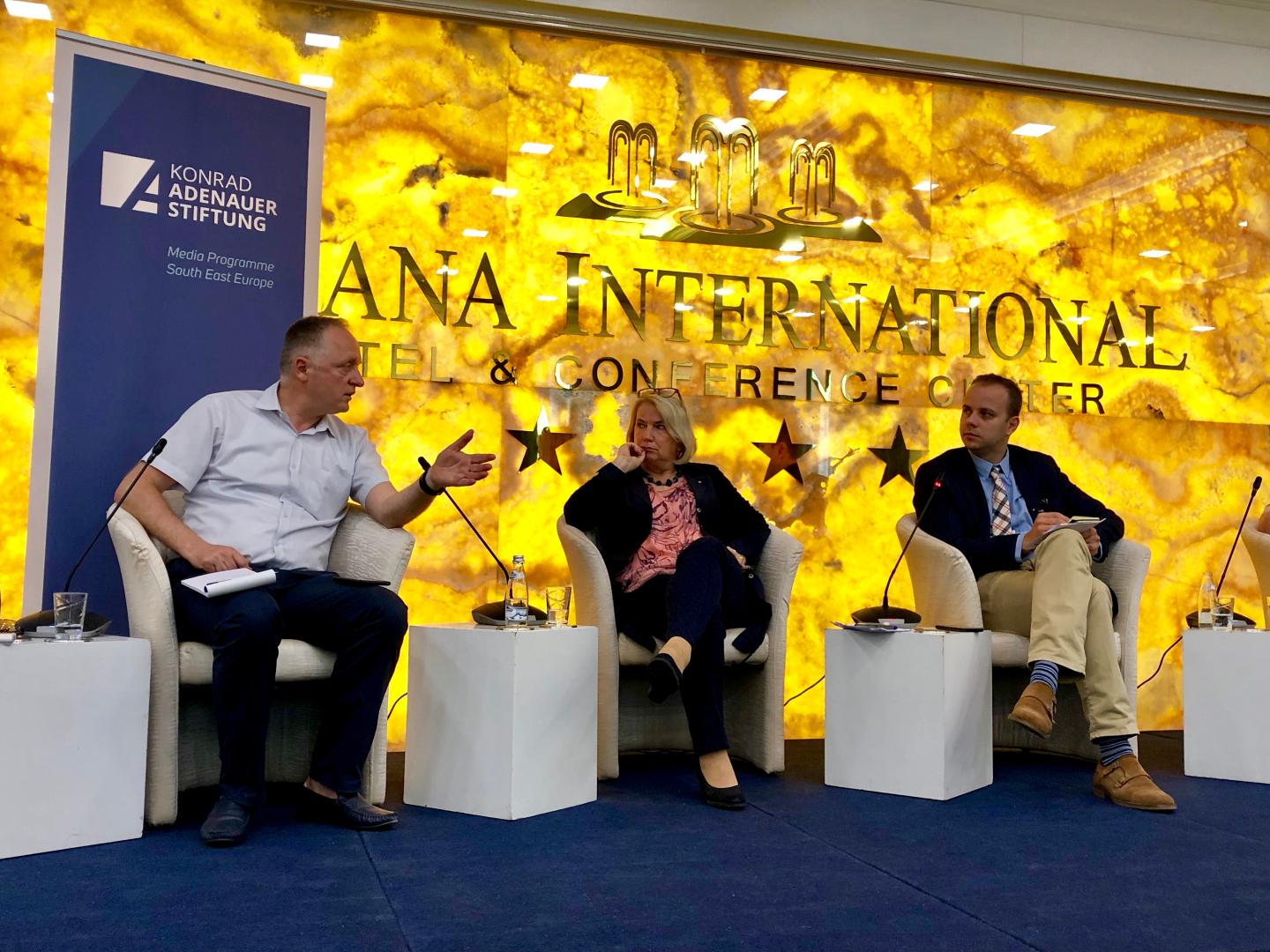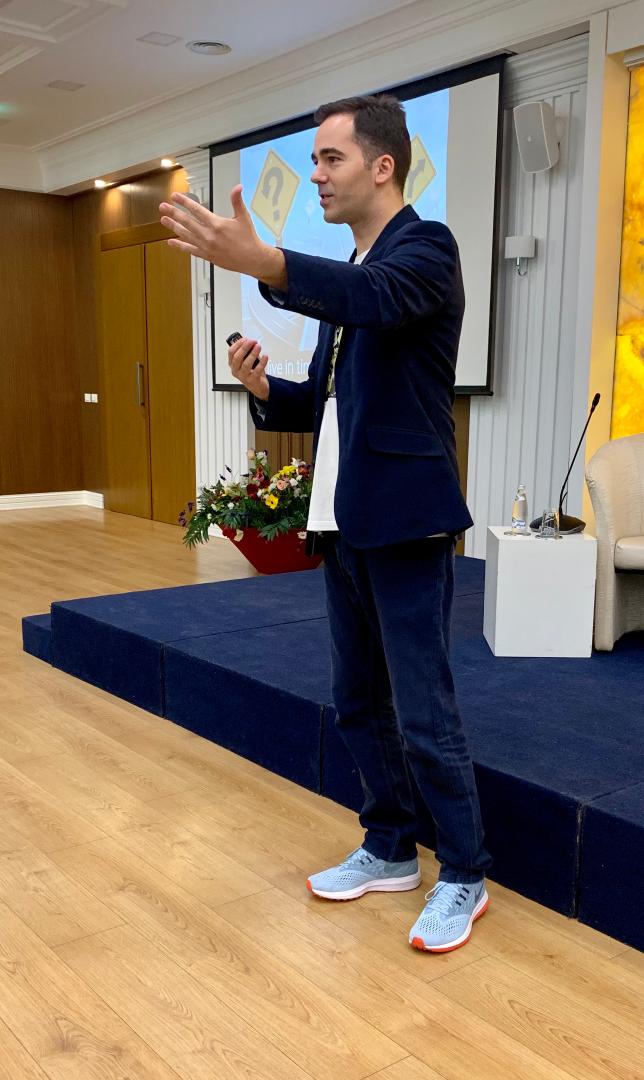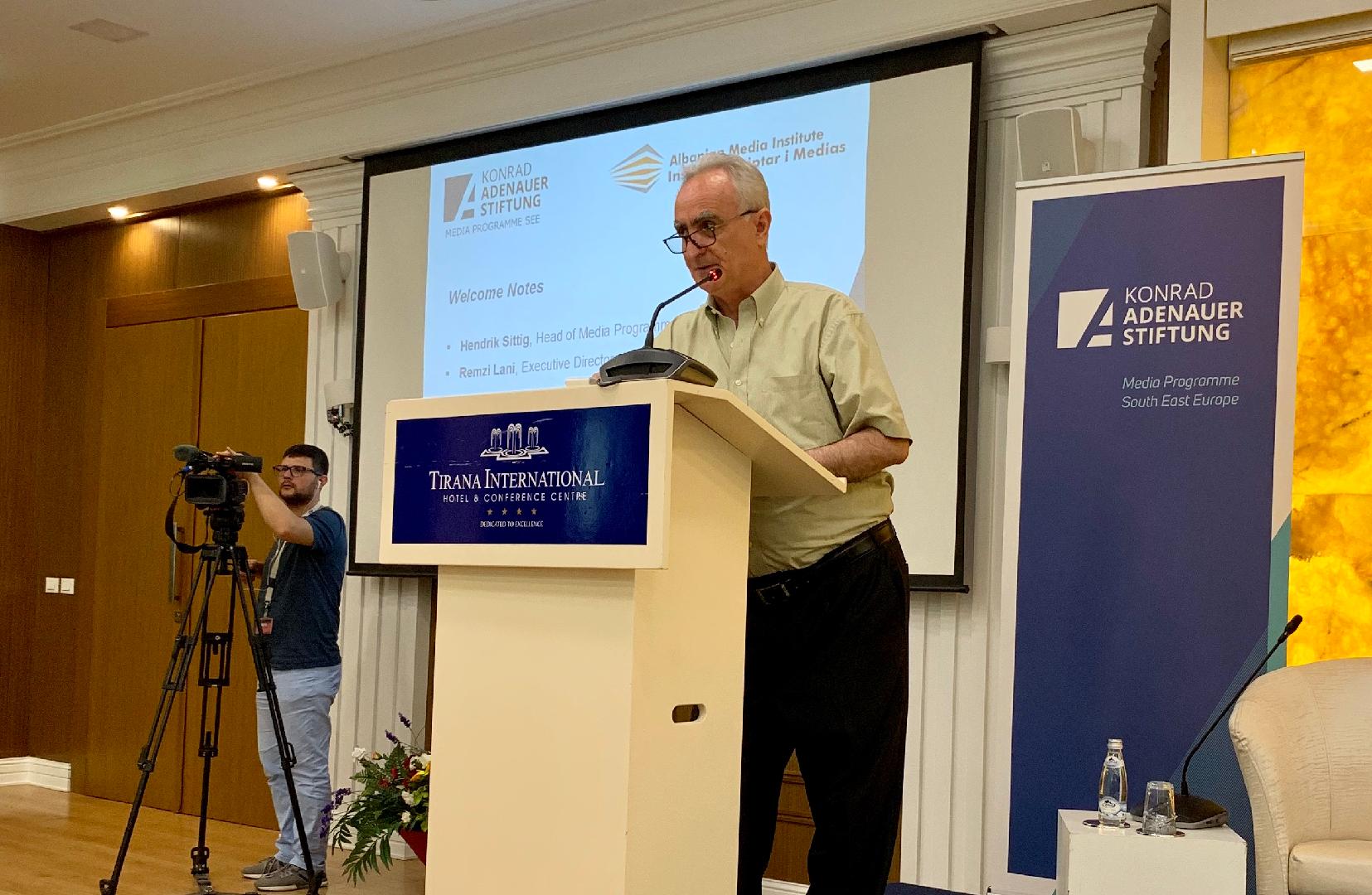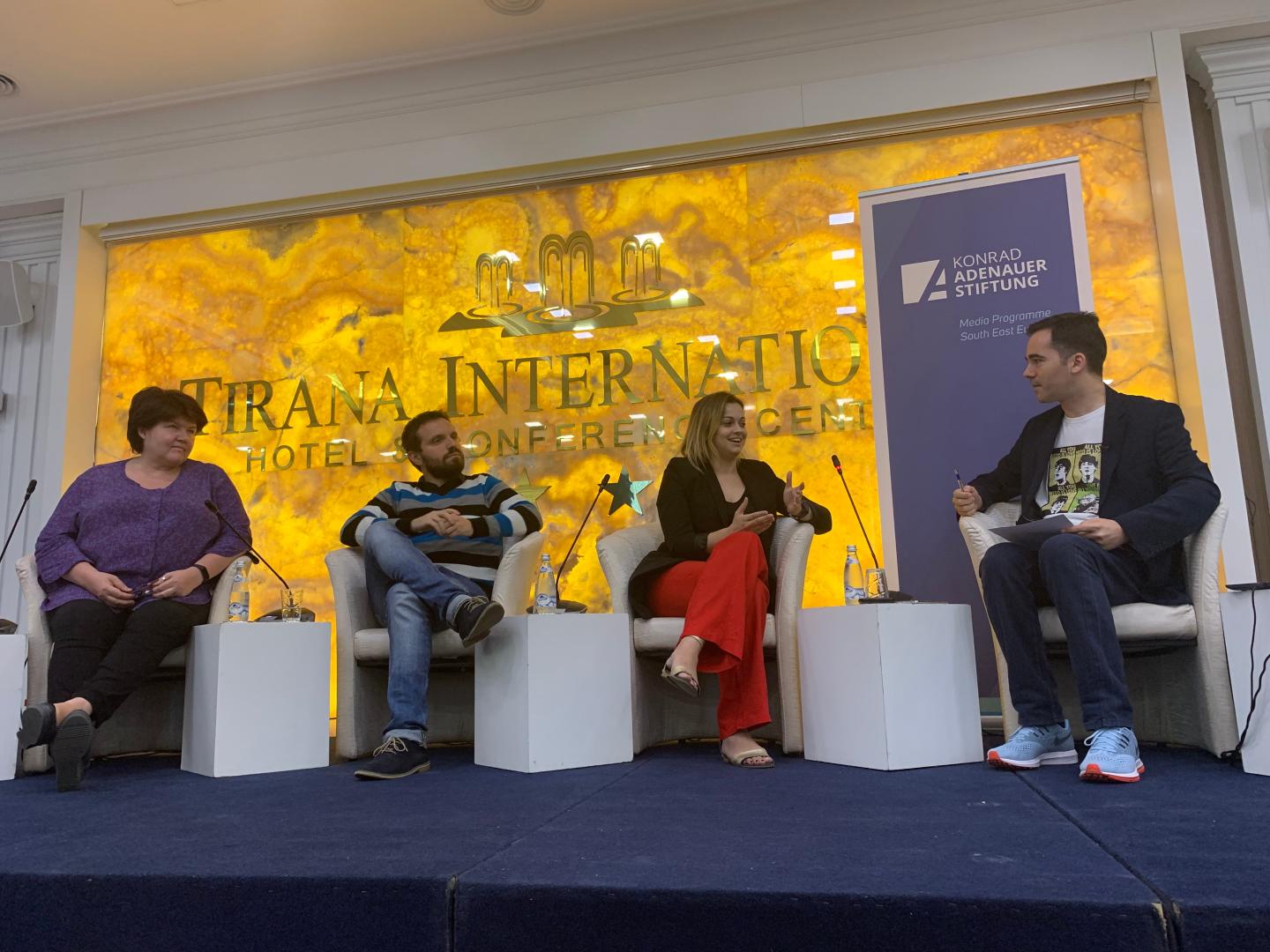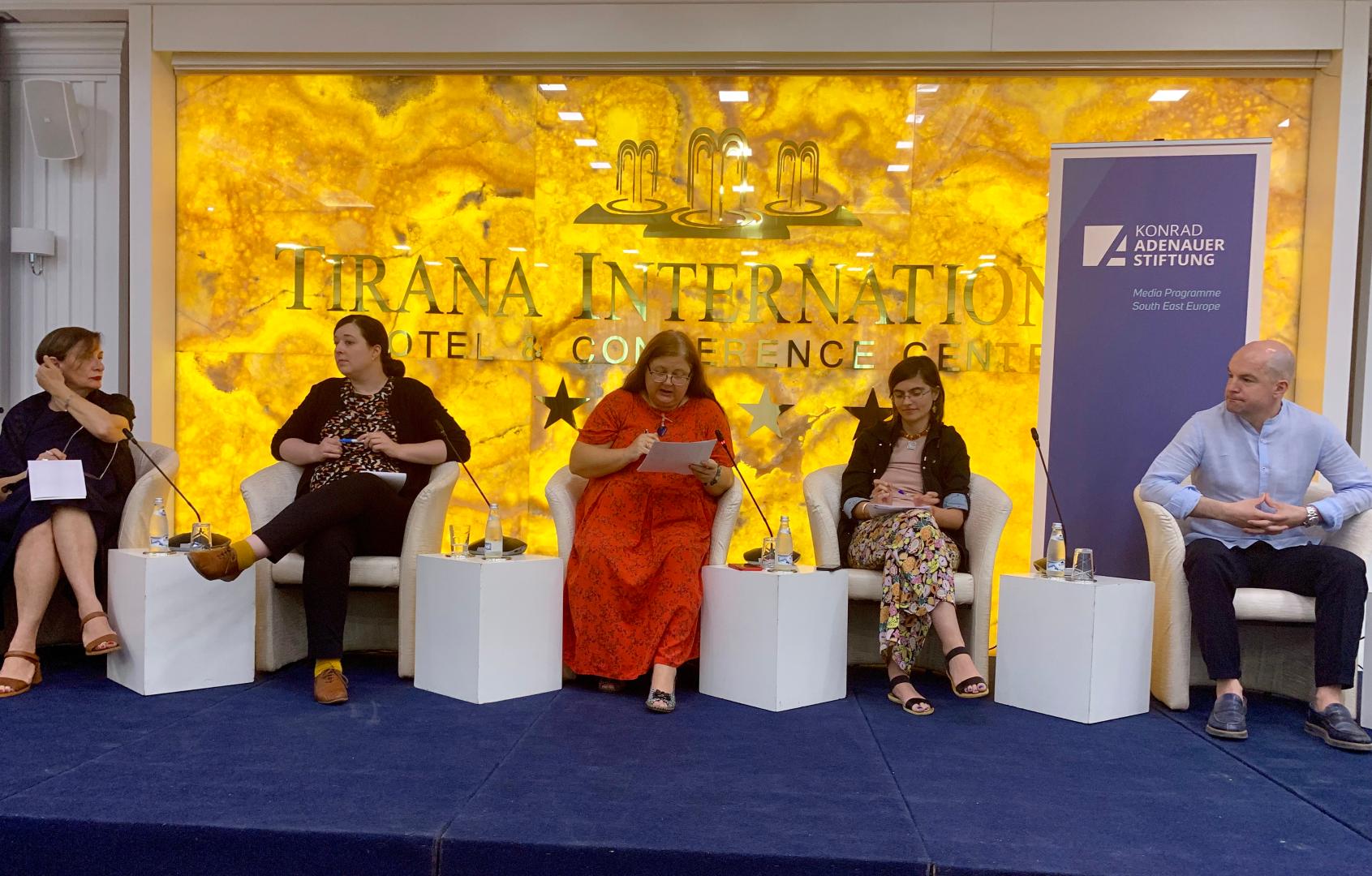Quality and trust as a necessity for the media in South East Europe - Media Programme Southeast Europe
The one-day conference was hosted by the Media Programme South East Europe of the Konrad-Adenauer-Stiftung and the Albanian Media Institute. Media experts, journalists and diplomats from South East Europe and Germany addressed the following questions: How has media freedom changed after the spread of new technologies? Why are innovations in the media sector necessary? Why is it important to regain the credibility of journalism?
The international conference was opened by Hendrik Sittig, Head of the Media Programme South East Europe. He underlined the role of journalists as observers and watchdogs of a functioning democracy. However, Sittig emphasised that this function hasn’t been always fulfilled by the media professionals in South East Europe. „Sometimes this happens, because they are victims of threats and political pressure. Under such conditions, it is a real challenge to be a good journalist. For that reason, the aim of this conference is to find ways to encourage greater media freedom in South East Europe“, he said. During the opening, Remzi Lani, Executive Director of the Albanian Media Institute, emphasised that the media in the region are facing many political and economic challenges. In his opinion these should be discussed more intensively in order to find common solutions.
The first panel discussion dealt with the risks of freedom of expression. Dragan Sekulovski, Executive Director of the Macedonian Journalists Association (AJM) moderated the talk. Leila Bičakčić, Director of the Center for InvestigativeReporting in Sarajevo, spoke about the media situation in Bosnia and Herzegovina. She criticized the political influence on the journalists in her country. Bičakčić explained that the Center for Investigative Reporting functions like a news agency providing topics and reports to other media. According to her this model offers a possibility to minimise the political influence. Regarding the funding of such centers, she said that it is difficult to survive without international funding. Another problem in Bosnia and Herzegovina in her point of view is the ethnic division of the society, which also strongly influences the media landscape. Adelheid Feilcke, Head of the Western Balkans department at Deutsche Welle, commented on the declining quality of the South East European media as a major challenge. A countermeasure in her point of view could be the investment of media literacy. Unfortunately, citizens got used to the unprofessional way of reporting of many media outlets and do not demand higher media standards. “This also leads to a lack of competition in the media market,” said Feilcke. Therefore,it would be necessary to reduce the number of media companies in favor of the quality of the media coverage. Lutfi Dervishi, journalist of the Albanian public service television and media expert, agreed that quality and trust in media are the base for media freedom. He underlined that the reforms should begin in the media houses. In his opinion, the journalists should question their work and professionalism in order to improve themselves. “This also requires strong support from the management and the General Directors”, Dervishi said. A good sign would be when the public broadcasters start to produce more investigative stories. Sandra Križanec, anchor at the Croatian TV channel N1 (CNN partner channel), commented that international media owners have a positive impact on media freedom in the region, as they often ensure independent editorial work. Moreover, she explained that live broadcasting is a good way to neutralise political influences, as it doesn’t allow reports to be subsequently changed.
More in the event report here.



